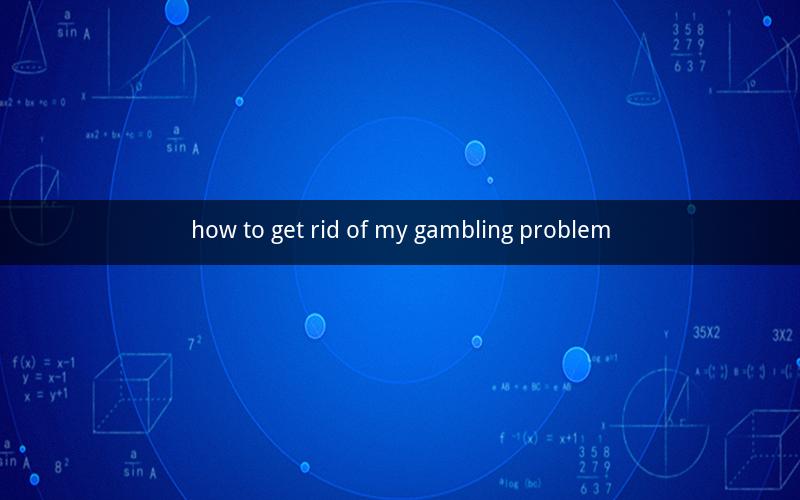
How to Get Rid of My Gambling Problem
Table of Contents
1. Understanding the Problem
2. Identifying the Signs of Problem Gambling
3. Seeking Professional Help
4. Building a Support System
5. Creating a Financial Plan
6. Developing Coping Mechanisms
7. Changing Habits and Environment
8. Emotional and Psychological Support
9. Staying Accountable
10. Recovery and Long-Term Success
1. Understanding the Problem
Gambling can be an enjoyable pastime for many, but for others, it can spiral into a dangerous addiction. Recognizing that you have a gambling problem is the first step towards overcoming it. Understanding the psychological and emotional aspects of gambling addiction is crucial in developing a comprehensive plan to overcome it.
2. Identifying the Signs of Problem Gambling
Problem gambling often manifests in various ways. Look out for signs such as:
- Financial Difficulty: Borrowing money, paying bills late, or experiencing financial stress due to gambling.
- Social Isolation: Avoiding family and friends, or neglecting responsibilities due to gambling.
- Physical Symptoms: Experiencing stress-related physical symptoms like headaches, insomnia, or anxiety.
- Mental Health Issues: Developing depression, anxiety, or other mental health problems due to gambling.
3. Seeking Professional Help
Professional help is essential in treating gambling addiction. Therapists, counselors, and psychologists can provide personalized strategies to overcome addiction. Consider the following options:
- Individual Therapy: Focuses on personal issues and strategies to overcome addiction.
- Group Therapy: Offers support and encouragement from others experiencing similar challenges.
- Cognitive-Behavioral Therapy (CBT): Helps identify and change negative thought patterns associated with gambling.
4. Building a Support System
A strong support system can significantly aid in recovery. This may include:
- Family and Friends: Encourage them to be understanding and supportive during your journey.
- Support Groups: Joining groups like Gamblers Anonymous can provide valuable insights and coping strategies.
- Professional Support: Utilize the services of a therapist or counselor to help navigate challenges.
5. Creating a Financial Plan
Addressing the financial aspect of gambling addiction is vital. Consider the following steps:
- Budgeting: Create a realistic budget to manage your finances and avoid overspending.
- Debt Management: Seek help from credit counseling services to manage and reduce debt.
- Setting Limits: Establish strict limits on how much you can spend on gambling activities.
6. Developing Coping Mechanisms
Finding healthy ways to cope with stress and emotions is crucial in overcoming gambling addiction. Some coping mechanisms include:
- Physical Activity: Engaging in regular exercise can help reduce stress and improve mood.
- Hobbies: Take up new hobbies or revisit old ones to occupy your time and mind.
- Mindfulness and Meditation: Practice mindfulness and meditation to stay grounded and focused.
7. Changing Habits and Environment
Identifying and changing habits that contribute to gambling can be challenging but essential. Consider the following:
- Identify Triggers: Recognize situations or emotions that trigger your gambling urge.
- Avoid Triggers: Stay away from environments that may encourage gambling.
- Establish Boundaries: Set clear boundaries with friends, family, and colleagues to support your recovery.
8. Emotional and Psychological Support
Emotional and psychological support are crucial during recovery. Some ways to seek support include:
- Journaling: Writing down your thoughts and feelings can help you process emotions and track progress.
- Relaxation Techniques: Practice relaxation techniques like deep breathing, yoga, or progressive muscle relaxation.
- Seeking Guidance: Regularly consult with a therapist or counselor to address any underlying issues.
9. Staying Accountable
Accountability is key to maintaining sobriety. Consider the following strategies:
- Set Goals: Establish clear, achievable goals for your recovery journey.
- Track Progress: Keep a record of your progress to stay motivated and on track.
- Seek Feedback: Regularly discuss your progress with a therapist, counselor, or support group.
10. Recovery and Long-Term Success
Recovery from gambling addiction is a lifelong process. To ensure long-term success:
- Maintain Sobriety: Continue to practice healthy habits and coping mechanisms.
- Stay Connected: Keep in touch with your support system and attend support group meetings.
- Celebrate Success: Acknowledge and celebrate your achievements along the way.
Questions and Answers
1. Q: What are the signs of problem gambling?
A: Signs include financial difficulty, social isolation, physical symptoms, and mental health issues.
2. Q: Can I overcome my gambling problem on my own?
A: While it's possible, seeking professional help and support can significantly increase your chances of success.
3. Q: How can I create a financial plan to manage my debt?
A: Create a budget, seek help from credit counseling services, and establish strict spending limits.
4. Q: Are there any medications that can help with gambling addiction?
A: Some medications can help manage symptoms of addiction, but they are not a cure. Consult with a healthcare professional for guidance.
5. Q: How can I change my environment to avoid triggers?
A: Identify triggers, avoid places that encourage gambling, and establish boundaries with friends and family.
6. Q: Can I still enjoy gambling if I have a problem?
A: It's essential to stop gambling entirely during recovery to prevent relapse.
7. Q: How long does it take to recover from gambling addiction?
A: Recovery is a lifelong process, but many individuals see significant improvements within a few months to a year.
8. Q: What if I relapse during my recovery?
A: Relapse is a common part of recovery. Seek support, learn from the experience, and continue working towards sobriety.
9. Q: Can my family and friends help me recover from gambling addiction?
A: Yes, a strong support system is crucial for recovery. Encourage them to be understanding and supportive.
10. Q: How can I maintain long-term success in my recovery?
A: Continue practicing healthy habits, stay connected with your support system, and celebrate your achievements.